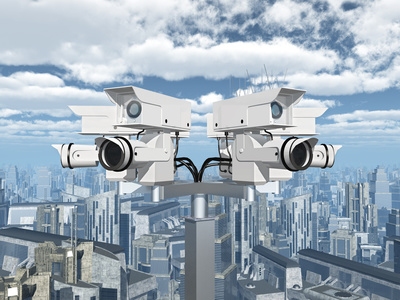Was denkt ein Geheimdienstchef über Smart Buildungs?
 (Abb. © Michael Rosskothen/Fotolia.com) James Clapper, Director of National Intelligence (DNI) und damit oberster Geheimdienstchef der USA, ging am 9. Februar auf das Internet der Dinge ein. Die Ausbreitung der smarten Geräte durch die smarten Bürger, die sich, ihre Fahrzeuge und Wohnungen vernetzen, bringe zwar Gefahren für Datenschutz und -manipulation mit sich, sei aber erfreulich für die Geheimdienste, die mit all den Geräten, die den Alltag der Menschen fortlaufend bis ins kleinste Detail überwachen, an noch mehr Daten herankämen. Natürlich nur zur Abwehr drohender Gefahren.
(Abb. © Michael Rosskothen/Fotolia.com) James Clapper, Director of National Intelligence (DNI) und damit oberster Geheimdienstchef der USA, ging am 9. Februar auf das Internet der Dinge ein. Die Ausbreitung der smarten Geräte durch die smarten Bürger, die sich, ihre Fahrzeuge und Wohnungen vernetzen, bringe zwar Gefahren für Datenschutz und -manipulation mit sich, sei aber erfreulich für die Geheimdienste, die mit all den Geräten, die den Alltag der Menschen fortlaufend bis ins kleinste Detail überwachen, an noch mehr Daten herankämen. Natürlich nur zur Abwehr drohender Gefahren.
Die Meldung im Wortlaut
James Clapper, the US director of national intelligence, was more direct in testimony submitted to the Senate on Tuesday [9. Februar]: “In the future, intelligence services might use the [internet of things] for identification, surveillance, monitoring, location tracking, and targeting for recruitment, or to gain access to networks or user credentials”. For the first time Mr. Clapper talked about how the ‚Internet of things‘ — autonomous cars, network-connected televisions and network-controlled home devices — provided ’new opportunities for our intelligence collectors.‘
Security experts examining the internet of things take as a given that the US and other surveillance services will intercept the signals the newly networked devices emit, much as they do with those from cellphones. The search engine Shodan indexes thousands of completely unsecured web-connected devices.
Clapper’s admission about the surveillance potential for networked home devices is rare for a US official. But in an overlooked 2012 speech, the then CIA director David Petraeus called the surveillance implications of the internet of things “transformational … particularly to their effect on clandestine tradecraft”.
The White House’s new cybersecurity initiative pledged increased security for nontraditional networked home devices. It tasked the Department of Homeland Security to “test and certify networked devices within the ‘Internet of Things’.” It did not discuss any tension between the US’s twin cybersecurity and surveillance priorities.
Connected household devices are a potential treasure trove to intelligence agencies seeking unobtrusive ways to listen and watch a target, according to a study that Harvard’s Berkman Center for Internet and Society released last week. The study found that the signals explosion represented by the internet of things would overwhelm any privacy benefits by users of commercial encryption – even as Clapper in his testimony again alleged that the growth of encryption was having a “negative effect on intelligence gathering”.
The report’s authors cited a 2001 case in which the FBI had sought to compel a company that makes emergency communications hardware for automobiles – similar by description to OnStar, though the company was not named – to assist agents in Nevada in listening in on conversations in a client’s car.
In February 2015, news reports revealed that microphones on Samsung “smart” televisions were “always on” so as to receive any audio that it could interpret as an instruction.
“Law enforcement or intelligence agencies may start to seek orders compelling Samsung, Google, Mattel, Nest or vendors of other networked devices to push an update or flip a digital switch to intercept the ambient communications of a target.
In diesem Sinne bis nächsten Donnerstag.
Artikelnummer: cci39964
Jede Art der Vervielfältigung, Verbreitung, öffentlichen Zugänglichmachung oder Bearbeitung, auch auszugsweise, ist nur mit gesonderter Genehmigung der cci Dialog GmbH gestattet.












